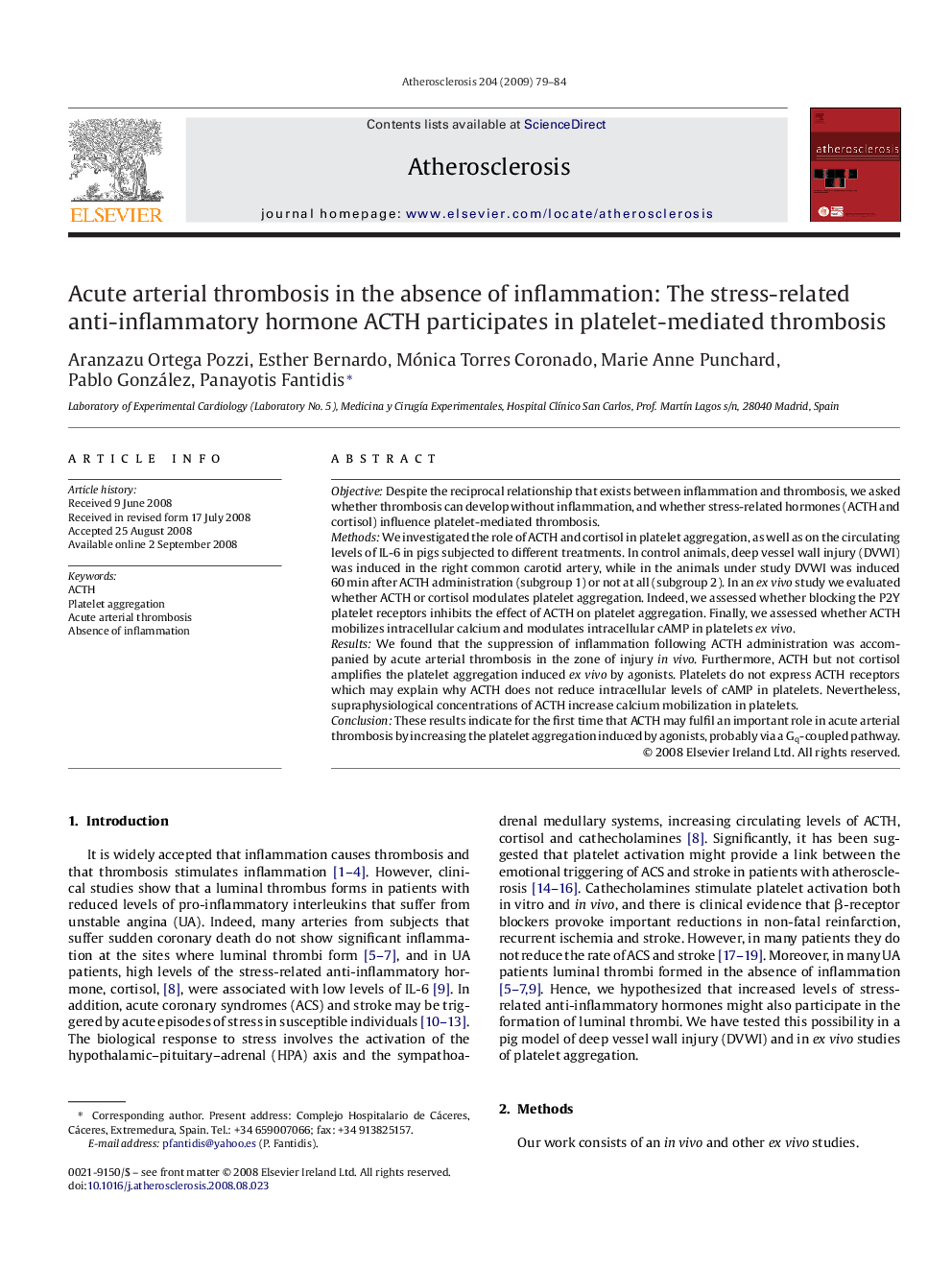| Article ID | Journal | Published Year | Pages | File Type |
|---|---|---|---|---|
| 2893605 | Atherosclerosis | 2009 | 6 Pages |
ObjectiveDespite the reciprocal relationship that exists between inflammation and thrombosis, we asked whether thrombosis can develop without inflammation, and whether stress-related hormones (ACTH and cortisol) influence platelet-mediated thrombosis.MethodsWe investigated the role of ACTH and cortisol in platelet aggregation, as well as on the circulating levels of IL-6 in pigs subjected to different treatments. In control animals, deep vessel wall injury (DVWI) was induced in the right common carotid artery, while in the animals under study DVWI was induced 60 min after ACTH administration (subgroup 1) or not at all (subgroup 2). In an ex vivo study we evaluated whether ACTH or cortisol modulates platelet aggregation. Indeed, we assessed whether blocking the P2Y platelet receptors inhibits the effect of ACTH on platelet aggregation. Finally, we assessed whether ACTH mobilizes intracellular calcium and modulates intracellular cAMP in platelets ex vivo.ResultsWe found that the suppression of inflammation following ACTH administration was accompanied by acute arterial thrombosis in the zone of injury in vivo. Furthermore, ACTH but not cortisol amplifies the platelet aggregation induced ex vivo by agonists. Platelets do not express ACTH receptors which may explain why ACTH does not reduce intracellular levels of cAMP in platelets. Nevertheless, supraphysiological concentrations of ACTH increase calcium mobilization in platelets.ConclusionThese results indicate for the first time that ACTH may fulfil an important role in acute arterial thrombosis by increasing the platelet aggregation induced by agonists, probably via a Gq-coupled pathway.
